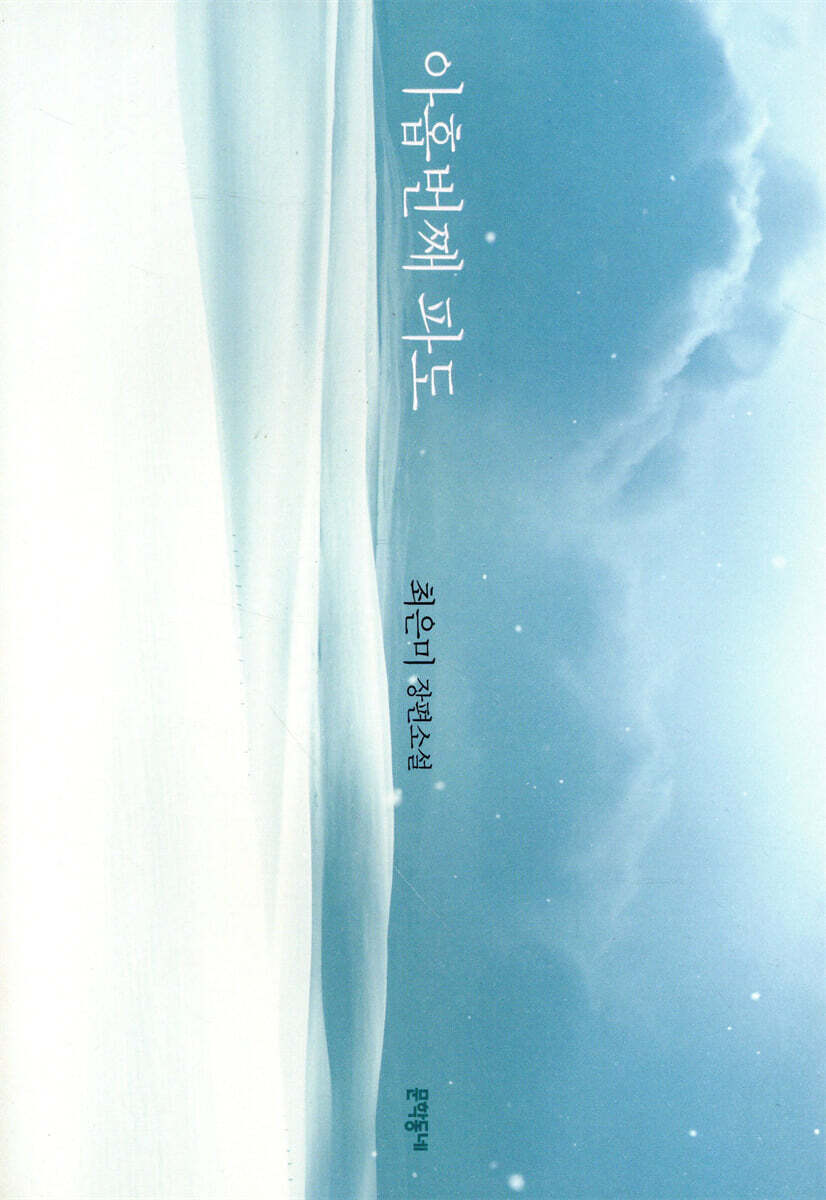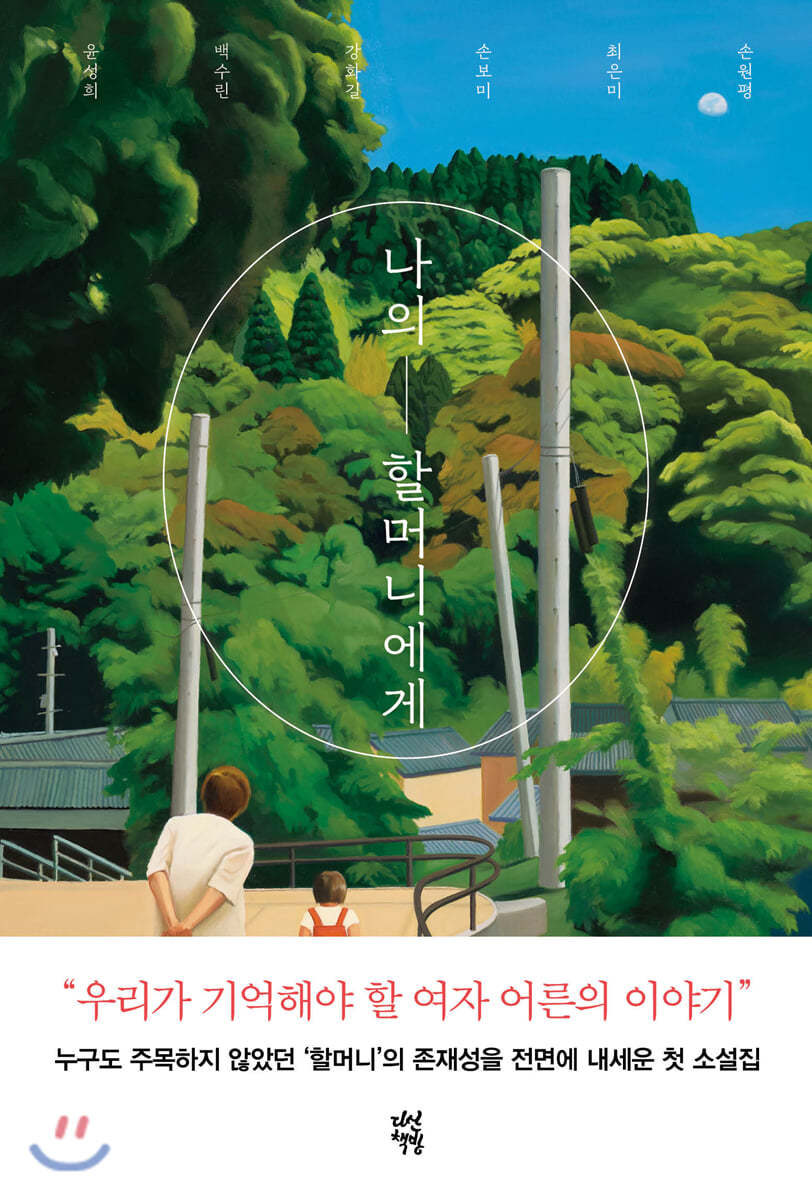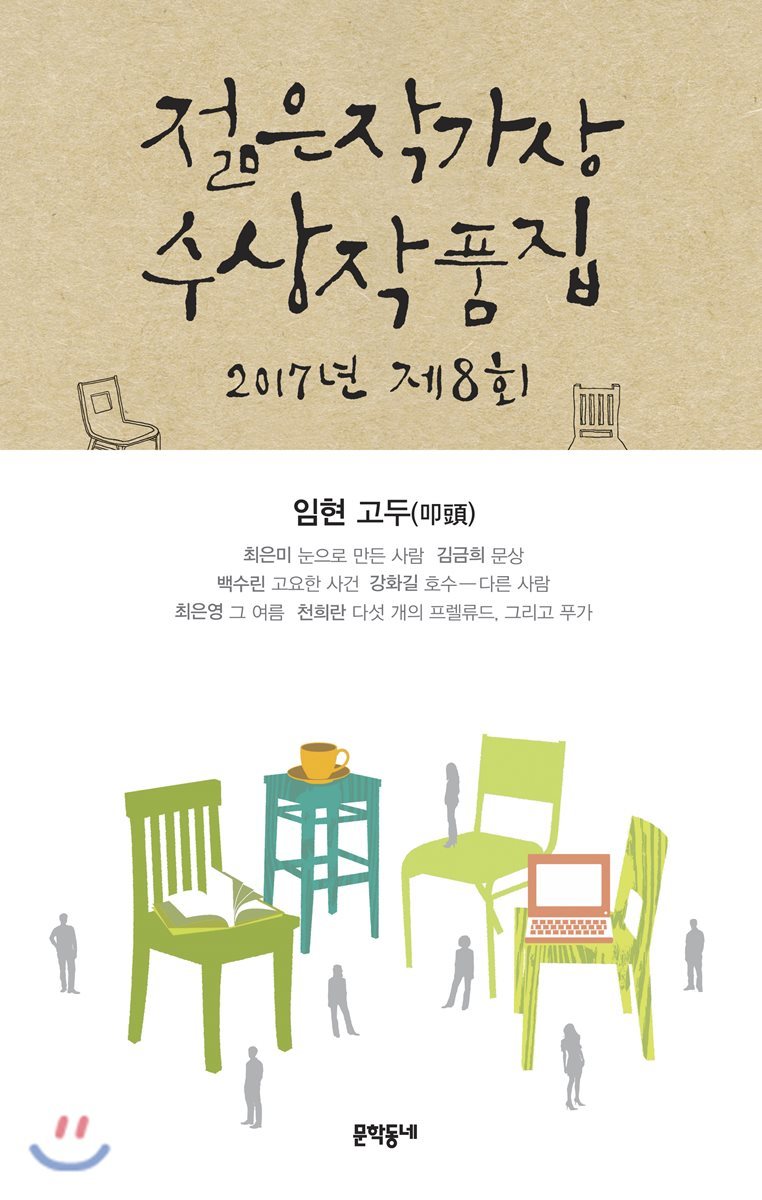작가명 : 최은미
1. 도입부 \
최은미는 21세기 한국의 소설가 중 드물게 불교적 상상력을 세계관의 한 축으로 삼고 있는 작가이다. 최은미의 소설이 불교적 상상력을 담아내고 있다고 해서 그것이 자비와 자애가 넘치는 서방정토의 풍경일 것이라고 생각하는 것은 큰 착각이다. 최은미에 따르자면 인간은 이성을 잃고 본능에 따라 살아가는 축생이나 인색함, 탐욕, 시기, 질투 등을 기본적인 성격으로 하는 아귀와 다르지 않다. 당연히 이러한 인간들이 관계를 맺으며 살아가는 세계는 지옥이다. 두 번째 소설집 『목련정전』에서는 섬뜩한 지옥의 형상을 이야기를 들려주듯 서사를 꿰어나간다. 표제작 「목련정전」은 불교경전 '목련경'을 소설로 변형시킨 작품으로 불교적 세계관을 엿볼 수 있다.
서평가 금정연은 최은미의 소설에 펼쳐진 세계를 문명 이전의 약육강식이 지배하는 자연으로 판단하는 평가에 반대하며 다음과 같이 말했다. “하지만 그건 충분한 답이 못 된다. 인간은 동물이지만 자연은 지옥이 아니기 때문이다. 따라서 지옥을 만드는 것은 인간의 동물적인 면이 아니라 인간의 인간적인 면이다. 언어를 사용하여 사고하고 관계를 맺고 사회를 이루는 능력 같은 것. 문제가 그것이라면 구원이 존재할 리 없다. 인간은 인간이라는 이유로 지옥을 살아갈 수밖에 없는 것이다. 음, 어쩐지 함정에 빠진 기분이다. 그렇다고 너무 놀랄 필요는 없다. 이것은 (물론) 소설이고 최은미는 자신의 인물들을 세심하게 설계한 지옥으로 밀어 넣고 관찰하기를 즐기는 조금은 심술궂은 소설가다. 그렇지만 너무 안심해도 안 된다. 『목련정전』에 실린 아홉 개의 단편에 육박하는 현실의 지옥들을 이미 몇 번인가 목격한 바 있다. 바로 여기, 21세기의 한국에서. 최은미가 그리는 지옥이 충격적이라면 아마 그 때문일 것이다.”
2. 생애 (Life)
최은미는 대한민국 소설가이다. 1978년 강원도 인제에서 태어났다. 동국대학교 사학과를 졸업했다. 2008년 현대문학 신인상에 단편소설 「울고 간다」가 당선되어 등단했다. 20대 초반부터 대학의 소설 창작과 이론 수업을 들으며 습작을 시작했다. 대학 졸업 후 출판사와 조계종 불학연구소에서 연구원으로 일한 경력을 가지고 있다. 불학연구소에서 일하며 스님들이 선방에서 정진한 내용을 담은 『방함록』에 남겨진 이런 저런 각주 혹은 낙서 같은 것을 보며 당시 스님들의 생생한 삶을 느낄 수 있었다고 말한다. 불교의 근현대사 자료를 정리하며 고승들을 만나 생생한 증언을 들으며 정리한 경험도 가지고 있다. 최은미는 자신의 소설을 관통하는 주제의식으로 불교용어인 ‘무명’을 제시한다. 그것은 사람의 삶을 제약하고 고통스럽게 하는 조건과 같은 것인데 이로 인해 아프고 사랑하는 사람들의 이야기를 쓰고 싶다고 인터뷰에서 말한 바 있다.
3. 작품 세계 (Writing)
최은미의 소설을 아리스토텔레스의 명칭을 빌려 비극이라고 부르건 최은미 자신이 보다 많이 빚지고 있는 불교적 세계관을 가져와 지옥이라고 부르건 상관이 없다. 문제는 최은미가 세계를 그런 고통의 공간으로 그리고 있다는 사실이다. 최은미의 첫 번째 소설집 『너무 아름다운 꿈』의 해설을 쓴 권희철은 비극이란 용어를 사용하면 이렇게 설명한다. “최은미의 소설들은 비극의 훌륭한 사례들로 꼽을 만하다. 그러나 비극이라는 말에 대해 오해해서는 안 된다. (…중략…) 비극은 나약한 자들을 위한 체념의 예술이 아니다. 비극은 슬픔, 고통, 시련조차도 반복과 긍정의 대상으로 만들 수 있는지를 묻기 위해서만 그것들을 탐구의 대상으로 삼는다. 그러한 긍정을 통해 삶을 더욱 살아 있는 것으로 만들 수 있는지, 삶의 보석함을 마침내 열어낼 수 있는지를 묻는 의욕과 의지에 대한 시험으로써의 예술, 그것이 비극이다. (…중략…) 삶이 곧 유죄판결이라는 인식 위에 쓰여진 것처럼 보였던 최은미의 소설이 그 안에서 결국 너무 아름다운 꿈을 발견해내고 마침내 삶의 결백과 기쁨을 끄집어낼 때 그것은 성공적인 비극이 된다. 최은미의 소설들을 사례로 제시하며 이렇게 말해볼 수도 있겠다. 비극을 읽는다는 것, 허무주의에 감염된 슬프고 무력한 순간들을 의욕에 찬 기쁨의 순간들로 되돌려놓으려 한다는 것, 다시 말하자면 삶을 살아낸다는 것. “살아가기 위해서 우리는 비극을 읽는 것입니다.””
최은미의 두 번째 소설집의 해설을 쓴 김형중은 두 가지 측면에서 최은미 소설의 특성에 접근한다. 하나는 최은미가 즐겨쓰는 과거의 문학적 형식, 즉 신화나 설화, 동화의 방식을 자주 차용하고 있다는 점이다. 김형중은 “설화와 동화 같은 구래의 장르들을 차용하여 변형을 가하고, 그럼으로써 그것들에 부착되어 있던 관습, 서사 패러다임, 이데올로기 등을 낯설게 하는 것이” 최은미의 장기라고 지적한다. 또 다른 하나는 최은미가 재현하고 있는 세계의 형상이다. 김형중은 그것을 지옥이라고 호칭하며 이렇게 말한다. “결론적으로 최은미가 구축한 지옥에 출구는 없어 보인다. 왜냐하면 그 세계는 이중 삼중으로 미리 결정되어 있기 때문이다. 형식적으로도 생물학적으로도 심리학적으로도 결정된 세계, 그 세계는 아비지옥을 닮았다. 왜냐하면 ‘결정되었다’라는 말이 지시하는 바가 바로 다른 가능성이 실현될 가능성 따위는 없어졌다는 의미이기 때문이다.”
4. 주요 작품 (Works)
『목련정전』, 문학과지성사, 2015년, ISBN : 9788932027951
『너무 아름다운 꿈』, 문학동네, 2013년, ISBN : 9788954621021
5. 수상 내역 (Awards)
2017년 「눈으로 만든 사람」 문학동네 젊은작가상
2015년 「창 너머 겨울」 문학동네 젊은작가상
2014년 「근린」 문학동네 젊은작가상
2008년 「울고 간다」 현대문학 신인상
6. 같이 보기 (Further Reading)
양경언, 오혜진, 윤재민, 이재경, 「리뷰 좌담_그때 저도 거기에 있었어요!-2014년 겨울의 한국소설」, 『문학동네』, 2015년 봄호.
「삶은 이해할 수 없는 재난…최은미 소설집 『목련정전』」, 『매일경제』, 2015년 10월 22일.
http://news.mk.co.kr/newsRead.php?no=1007031&year=2015
「곰팡이처럼…끝없는 번식이 빚어내는 아비지옥」, 『한국일보』, 2015년 11월 2일.
http://www.hankookilbo.com/v/21fa58a3b0474a39a6bfd181d6993829
최은미·김남혁, 「최은미 작가 인터뷰」, 『웹진 문지』, 2010년 12월 1일.
https://www.youtube.com/watch?v=VLlkmhF_QNM
작가명 : Choi Eun-mi
1. 도입부
Choi Eun-mi is one of the few South Korean novelists of the twenty-first century to incorporate Buddhist cosmology into her fictional universe. However, her novels are a far cry from portraying a merciful and benevolent Western Paradise. In Choi’s view, people are no different than animals that follow instinct over reason, or hungry ghosts characterized by stinginess, greed, and jealousy. Naturally, the world where such people live and interact with one another, as Choi sees it, is hell. Her second short story collection Mokryeon jeongjeon (목련정전 Lotus Canon) is a chilling portrayal of hell, except she chooses to tell it like an old folk tale. The title piece “Mokryeon jeongjeon” draws on Buddhist themes, having been adapted into a short story from the Buddhist scripture Lotus Sutra.
Book reviewer Geum Jeong-yeon objects to seeing Choi’s fictional realm as a kind of survival-of-the-fittest natural world that existed before the dawn of civilization:
“But that cannot be a sufficient answer; humans are animals, but nature is not hell. What creates hell is therefore not our animal side but our human side—things like our ability to think, use language, build relationships, and create societies. If these are the source of our damnation, then there can be no salvation. We have no choice but to live in hell because we are human. Does this sound like a trap to you? There is no need to raise the alarm, however. This is (of course) a novel, and Choi Eun-mi is a bit of a mischievous writer who enjoys pushing her characters into her elaborately designed hell and observing how they fare. But don’t let your guard down either. You’ll realize that the hells of reality depicted by the nine short stories in Mokyreon jeongjeon are scenes you’ve already seen several times elsewhere. That is, here, in twenty-first-century South Korea. If you find Choi’s version of hell shocking, that’s probably why.”
2. 생애 (Life)
Choi Eun-mi was born in 1978 in Inje, Gangwon province. She studied history at Dongguk University. She made her literary debut in 2008 when her short story “Ulgo ganda” (울고 간다 I Cry and Go) won the Hyundae Literary Award for New Writers. From her early twenties, she took undergraduate classes in novel writing and theory, and began practicing to write. After graduating university she worked for a publisher and for the Jogye Order Buddhist Studies Institute as a researcher. During her time at the Institute, Choi recounts reading banghamrok, which are records of zen meditations performed by various monks, and being fascinated by the footnotes and scribbles that gave her insight into the monks’ lives. She also interviewed eminent monks while compiling records on contemporary and modern Buddhist history. Choi stated in an interview that a dominant theme in her novels is avidya, a Buddhist term describing the conditions that restrict and agonize a person’s life, and that she wants to write about people who suffer and love because of avidya.
3. 작품 세계 (Writing)
Choi Eun-mi’s novels may be seen as tragedies in the Aristotelian sense, or as depictions of hell in the Buddhist sense. Either way, what should be noted is how she portrays the world as a place of suffering. In the afterword to Choi’s first short story collection Neomu areumdaun kkum (너무 아름다운 꿈 A Dream Too Beautiful), literary critic Gwon Hui-cheol discusses tragedy:
“Choi Eun-mi’s novels deserve to be hailed as superb works of tragedy. But one must not misunderstand the term ‘tragedy’ . . . Tragedy is not an art of resignation for the weak. It explores the subjects of sadness, pain, or adversity only to see if they can be repeated or made positive. By turning those subjects into something positive, can life be enriched? Can life’s treasure box finally be opened? Tragedy is an art that tests one’s will or drive to ask such questions . . . Choi Eun-mi’s novels initially seem like they were written in the belief that life is equivalent to receiving a guilty verdict. But the stories eventually lead to finding ‘a dream too beautiful’ and uncovering life’s innocence and joys, which is precisely what makes them successful tragedies. Perhaps Choi’s novels prove that reading tragedy is an attempt to turn moments of sadness and languor steeped in nihilism into joy and vigor—that is, to live life fully. We read tragedy to keep on living.”
Critic Kim Hyeong-jung, who wrote the afterword to Choi’s second short story collection, points out two characteristics of her novels. First, Kim observes that she often employs old literary forms such as myths, legends, or fairy tales. Her forte, according to Kim, is to “borrow from traditional genres like folklore or fairy tales, introduce changes to them, and in doing so, make their conventions, narrative forms, ideologies, etc. feel unconventional.” Second, Kim argues that Choi’s fictional universe is hellish: “Ultimately, the hell that Choi Eun-mi has built does not seem to have any exits. It has been predetermined on several levels—structurally, biologically, and psychologically. And that world resembles Avīci, because being ‘predetermined’ entails that any other possibilities are ruled out.”
4. 주요 작품 (Works)
『목련정전』, 문학과지성사, 2015년, ISBN : 9788932027951
Lotus Canon. Moonji, 2015.
『너무 아름다운 꿈』, 문학동네, 2013년, ISBN : 9788954621021
A Dream Too Beautiful. Munhakdongne, 2013.
5. 수상 내역 (Awards)
2017: Munhakdongne Young Writers' Award for “Nuneuro mandeun saram” (눈으로 만든 사람 A Person Made from Snow)
2015: Munhakdongne Young Writers' Award for “Chang neomo gyeoul” (창 너머 겨울 Winter Beyond the Window)
2014: Munhakdongne Young Writers' Award for “Geunlin” (근린 Vicinity)
2008: Hyundae Literary Award for New Writers for “Ulgo ganda” (울고 간다 I Cry and Go)
6. 같이 보기 (Further Reading)
양경언, 오혜진, 윤재민, 이재경, 「리뷰 좌담_그때 저도 거기에 있었어요!-2014년 겨울의 한국소설」, 『문학동네』, 2015년 봄호.
Yang, Gyeong-eon, Hye-jin Oh, Jae-min Yun, and Jae-gyeong Lee. “Book Discussion: I Was There Too Then! Korean Novels of 2014 Winter.” Munhakdongne, 2015 Spring Issue.
「삶은 이해할 수 없는 재난…최은미 소설집 『목련정전』」, 『매일경제』, 2015년 10월 22일.
“Life is an Unfathomable Disaster: Choi Eun-mi’s Short Story Collection Lotus Canon.” Maeil Business News Korea, October 22, 2015.
http://news.mk.co.kr/newsRead.php?no=1007031&year=2015
「곰팡이처럼…끝없는 번식이 빚어내는 아비지옥」, 『한국일보』, 2015년 11월 2일.
“Avīci Born from Endless Breeding...Like Fungi.” Hankook-Ilbo, November 2, 2015.
http://www.hankookilbo.com/v/21fa58a3b0474a39a6bfd181d6993829
최은미·김남혁, 「최은미 작가 인터뷰」, 『웹진 문지』, 2010년 12월 1일.
Choi, Eun mi, and Nam-hyeok Kim. “Interview with Writer Choi Eun-mi.” Webzine Moonji, December 2, 2010.
https://www.youtube.com/watch?v=VLlkmhF_QNM





